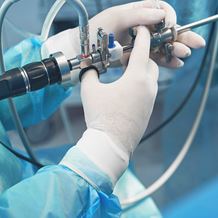Shoulder Orthopaedics
- Home
- Services
- Orthopaedics
- Shoulder Orthopaedics
Shoulder Conditions & Our Treatments
I have a shoulder condition, what are my next steps?
The shoulder is the most flexible joint in the body. It allows us an incredible range of motion and is well supported by a complex structure of tendons, ligaments and muscles. This flexibility also makes it vulnerable to overuse and injury. Left untreated it can lead to severe pain and discomfort.
Orthopaedic shoulder surgeons specialise specifically in fractures, dislocations, degenerative conditions, injuries and disorders of the shoulder. Our specialists have an extensive understanding of the broad spectrum of conditions that can affect this joint, alongside a wide range of experience in the latest treatments and surgical techniques.
Common symptoms of shoulder include severe pain that does not respond to medication or rest, restricted movement, and clicking. If the pain intensifies over time and consistently impacts your full range of motion, it is best to speak to a healthcare professional.
At St Vincent’s Private Hospitals, our orthopaedic surgeons specialise specifically in shoulder care and are considered among Australia’s leading practitioners. We are committed to supporting patients at every step of their healthcare journey through surgical excellence, outstanding facilities and patient-centred care.

-
Step 1
GP
ReferralSee your GP about getting a referral for your specialist appointment at your nearest St Vincent’s Private Hospital.
-
Step 2
Specialist
ConsultationTalk to our world-leading specialists about the most suitable treatment options available to support your needs.
-
Step 3
Your
TreatmentExperience the streamlined care available from our team of experts as we help support you through your hospital admission, procedure and rehabilitation.
-
Step 4
Your
RecoveryOur rehabilitation team will guide you each step of the way as you regain your strength and independence.
Find an orthopaedic specialist
Find a specialist
Frequently Asked Questions
- Pain when lifting your arms forwards, up high, or behind your back
- Pain when resting or sleeping
- Shoulder stiffness
- Clicking or popping sounds
- Pain deep within the shoulder joint
- Weakness or instability in the joint



